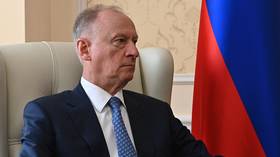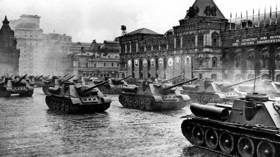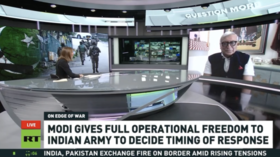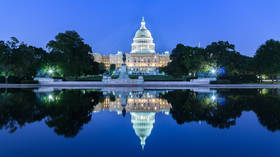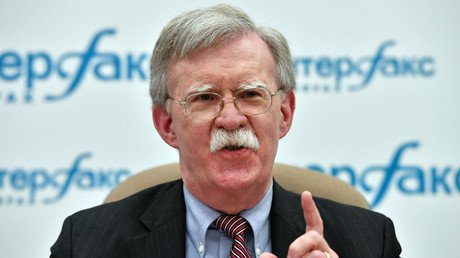US to expand Pacific military base together with Australia in bid to stop China’s growing influence
The US has said it will join Australia in the development of a naval base on Papua New Guinea’s Manus Island to “protect the freedom of the seas,” in a move apparently aimed at curbing China’s presence in the Pacific.
Australia, a staunch US ally in the Pacific, had already set its sights on Papua New Guinea’s Lombrum Naval Base on Manus Island earlier in November, seeking to build a deep-water facility for its Navy. Now, Washington apparently has also decided to join the effort, in a move clearly aimed at sending a signal to Beijing, which is already locked in a trade war with Washington and in disputes over the South China Sea.
'US will not change course until China changes its ways' - Pence https://t.co/EeyReTzkpF
— RT (@RT_com) November 17, 2018
“We will work with these nations to protect the sovereignty and maritime rights of Pacific islands as well,” the US Vice President said on Saturday, referring to Australia and Papua New Guinea, as he spoke about the US plans on the Lombrum base.
“And you can be confident, the US will continue to uphold the freedom of the seas and the skies,”he added, in a thinly veiled jab at China as he appeared to draw parallels with the South China Sea, where the US claims it seeks to protect “the freedom of navigation” as well.
US objects to #Beijing’s military steps in S. China Sea – #Boltonhttps://t.co/gsrmHq1Qmrpic.twitter.com/ny4Lhg3rFL
— RT (@RT_com) November 13, 2018
It is no surprise that the US decision apparently came on the heels of rumors that China might also emerge as the eventual developer of the deep-water base. Some other reports suggested that China approached another Pacific island nation, Vanuatu, seeking to open a military base there.
Apart from that, the US also seems to be concerned that Beijing might use its growing influence over the Pacific island nations to get access to some military infrastructure in the vicinity of major maritime routes in the region. Pence even engaged in an indirect verbal duel with China’s President Xi Jingping at the APEC summit, where the two apparently fought for the attention of the smaller Pacific nations.
If Washington is not satisfied, there will be 'an all-out Cold War' https://t.co/HU6rbZ0ydb
— RT (@RT_com) November 14, 2018
"Do not accept debt that could compromise your sovereignty. Protect your interests," Pence called on the island nations, referring to China’s active policy of giving loans to the Pacific states, which might turn it into a major bilateral lender to island economies.
He then called on the Pacific nations to stick with the US as it allegedly offers a “better option” because it would supposedly never “coerce or compromise your independence.” Xi, in turn, said that “no one has the power to stop people from seeking a better life,” while calling on the Pacific nations to “strengthen development cooperation” as well.
However, in its attempt to outplay Beijing in its supposed rush to gain control over strategic locations in the Pacific, the US and Australia seemingly completely forgot to ask the locals about their take on the prospect of the base re-development.
No one has sought support from the locals, Manus Island Governor Charlie Benjamin said, as cited by Reuters. The project was also criticized by a former Papua New Guinea MP from the island, Ronnie Knight, who said that “there is lot of questions to be answered” first.
"There was no discussion with any of the locals, it has just been bulldozed through again and that is what makes people cross," he told Australia’s ABC broadcaster, expressing his concerns about potentially “having a foreign base on our soil.”
Manus Island already has a history of serving the interests of the US and its allies. Papua New Guinea’s smallest province, with a population of about 50,000 people, it once served as a major US naval base during the WWII and hosted one of Australia’s two controversial offshore immigration detention centers in much less distant times.
If you like this story, share it with a friend!





